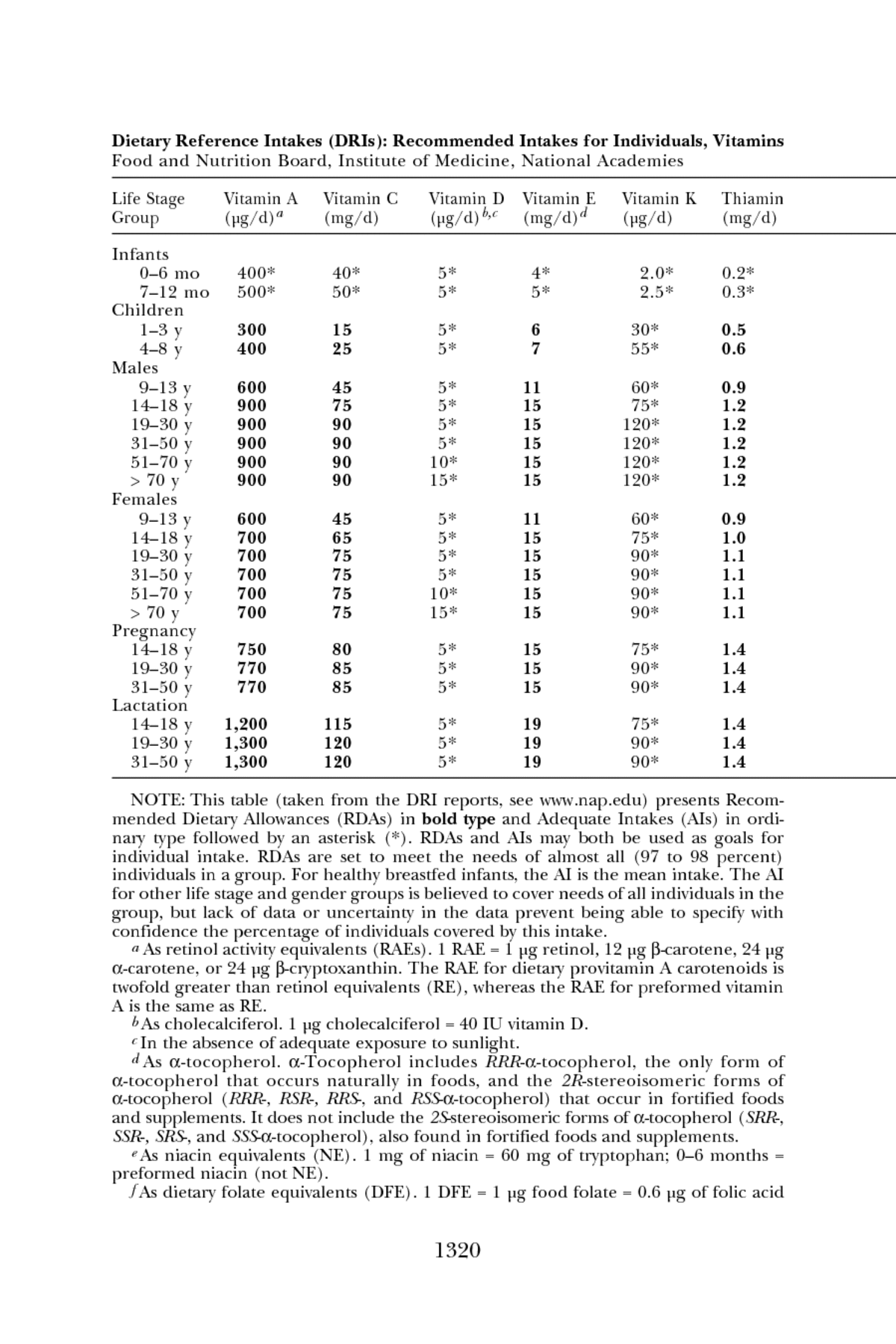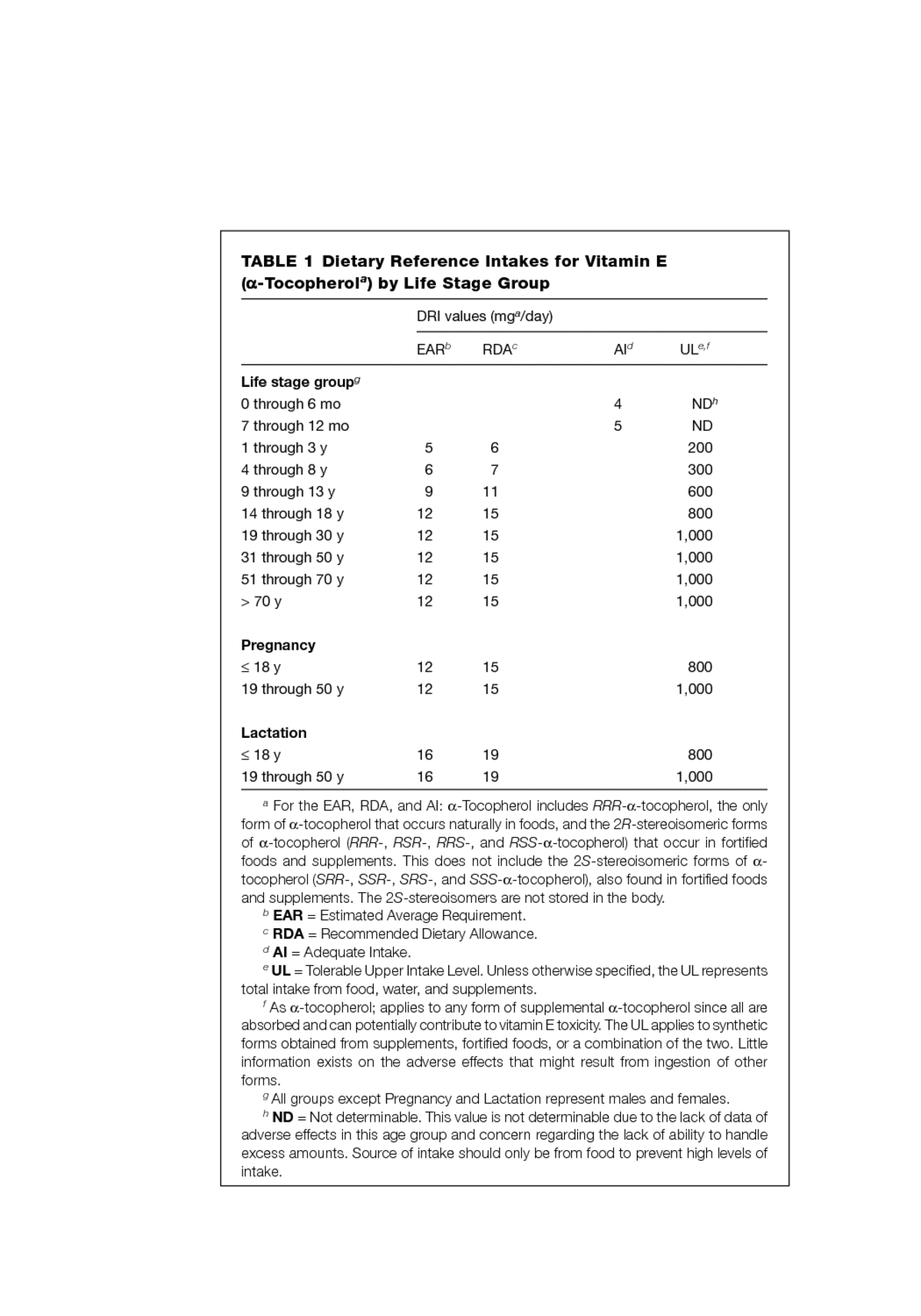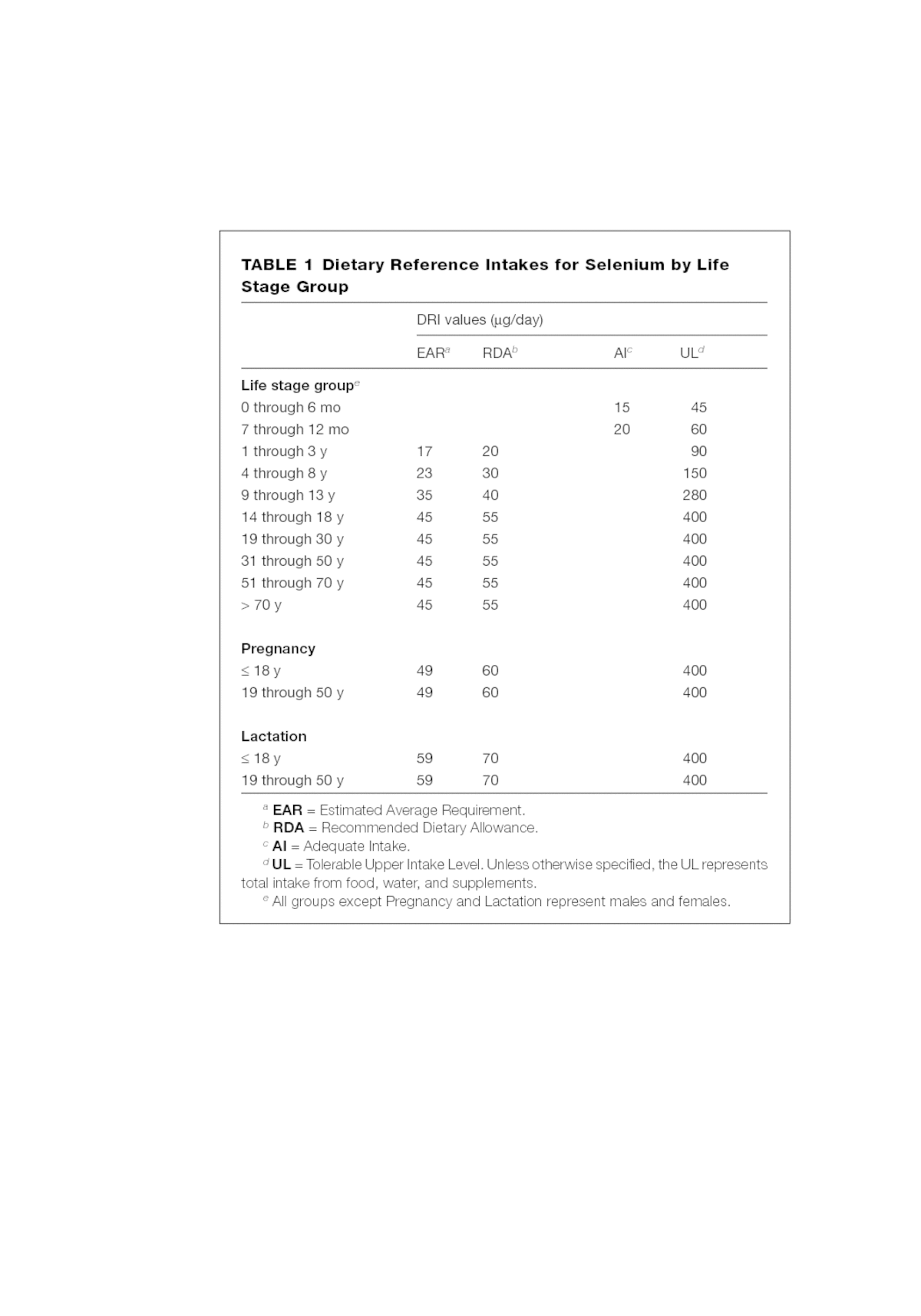There Is No Dietary Reference Intake Dri For Adults For

Dietary reference intakes for sodium there remains insufficient evidence to establish sodium dris for adequacy as ears and rdas.
There is no dietary reference intake dri for adults for. And renders authoritative judgments on the relationships among food intake nutrition and health. Furthermore there is insuffi cient evidence to establish a toxicological risk level from high sodium intake separate from chronic disease risk. Dietary reference intakes dri are the recommendation levels for specific nutrients and consist of a number of different types of recommendations.
An eer is defined as the average dietary energy intake that is predicted to maintain energy balance in. A brief overview dietary reference intakes dri is an umbrella term for four reference values. The tolerable upper intake levels uls for vitamins and minerals are levels likely to pose no adverse health effect when consumed daily.
The dietary reference intake dri is a system of nutrition recommendations from the institute of medicine iom of the national academies united states. F t or f. Dietary reference intakes for older adults updated 03 19 04 this table presents dri values for men and women for ages 51 to 70 and over 70.
It was introduced in 1997 in order to broaden the existing guidelines known as recommended dietary allowances rdas see below the dri values differ from those used in nutrition labeling on food and dietary supplement products in the u s. It is a guide that helps in determining the amount of nutrient to be consumed on a regular basis by healthy individuals. Dietary reference intakes definitions estimated average requirement ear.
Since there is no evidence that weight should change with ageing if activity is maintained the reference weights for adults 19 30. Sufficient to meet the nutrient requirements of nearly all 97 98 percent healthy individu als in a group. These documents are issued by the food and nutrition board of the institute of medicine national academy of sciences the food and nutrition board addresses issues of safety quality and adequacy of the food supply.
Establishes principles and guidelines of adequate dietary intake. It is designed for people who are healthy and fit. For this information we can turn to the dietary reference intakes dri a set of recommendations developed by the national academies of sciences engineering and medicine to describe the amounts of specific nutrients and energy that people should consume in order to stay healthy.


















